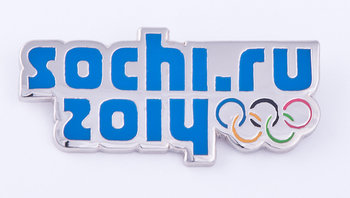SOCHI,
RUSSIA—Anton Shipulin made his mark at the last possible moment of the 2014 Winter Olympics. After finishing fourth in the first biathlon race, then watching his sister win gold, the Russian anchored his country’s team to win the men’s 4 x 75 km relay on the final day of biathlon competition.
Germany finished 3.5 seconds behind with
Austria taking bronze.
Russia has not won gold since the days of the
Soviet Union back in 1988 when their major competition was the Germans from 1968 and beyond.
In the final biathlon event of the 2014 Winter Olympics, Norwegian star Ole Einar Bjoerndalen competed in his last opportunity to win a 14th Olympic medal before calling it a career. In the men’s 4 x 7.5 km event, his country was the heavy favorite with
Sweden,
Czech
Republic and
Russia vying to be the dream crushers. After watching the Ukrainian women win the 4 x 6 relay yesterday their country’s team looked to be the dark horse going in.
The Norwegians ran the course from the first man to the third with Ole Einar Bjoerndalen taking the first fastest leg as the veteran pair of him and Emil Hegle Svendsen looked to repeat as defending Olympic champions. With the change of Bjoerndalen going in the third leg his lead of 23.1 seconds of
Russia was a gap that could be held giving the 40 year-old enough time to shoot through the range clean. On the third round, Bjoerndalen went five for five and held the majority of his time going into the second lap of the third leg.
Germany’s Arnd Peiffer began to gain ground on
Norway dropping the gap to 18 seconds before the sixth round at the shooting range. Norway went clean again with Germany and Russia following but the earlier lead that Bjoerndalen had came back for one last lap before handing the race to his teammate Svendsen. Pieffer began to close the gap dramatically due to the fatigue of the “King of Biathlon” who competed in his sixth Olympics with hopes to retire. Svendsen took the lead two seconds ahead of German Simon Schempp with Shipulin holding
Russia close in the medal race.
The final pairs of shooting would be the deciding factor on whether they would go back to back in the event or surrender the power to another. Svendsen came into the seventh round and went clean with
Germany and
Russia again showing accuracy in the prone position and leaving the top three by a span of five seconds. The Norwegian could not gain ground on his younger opponents as
Russia took the lead coming into the final round. “It was really sad we didn’t get a medal today,” said Bjoerndalen. The host country had yet to score a gold medal in the sport this year and with Shipulin desperately trying to repeat what his sister did, the moment arrived.
He took the lead coming into the range and quickly left with a perfect five for five along with
Germany while others struggled. In a complete shock to the crowd and
Norway, Svendsen missed four times that sent him to the penalty loop where he eventually dropped out of medal contention with a 43.2 second margin. It was the first time since 2006 where they didn’t find themselves on the podium. That set up a historical battle with
Germany and
Russia as they have been at each other since the 1968 games at
Grenoble with the Soviet Union winning the first six and
Germany winning the last four of five.
When Shipulin returned to the stadium on the homestretch the crowd went wild as they cheered their countryman to the finish line. It was enough energy to send him on a rush leaving Schempp struggling to finish the race in 1 hour, 12 minutes, and 15 seconds. “It was a really tough last lap,” Schempp said. “I came very quick off the shooting range and was running for the first half but I got tired in the end.”Â
The Americans were far too tired and couldn’t find their last chance to make history again. The
United States finished 16th, 5:23 back being the last team on the lead lap. The Norwegians still finished well with six medals, with the
Czech
Republic winning five and
Austria winning two.






